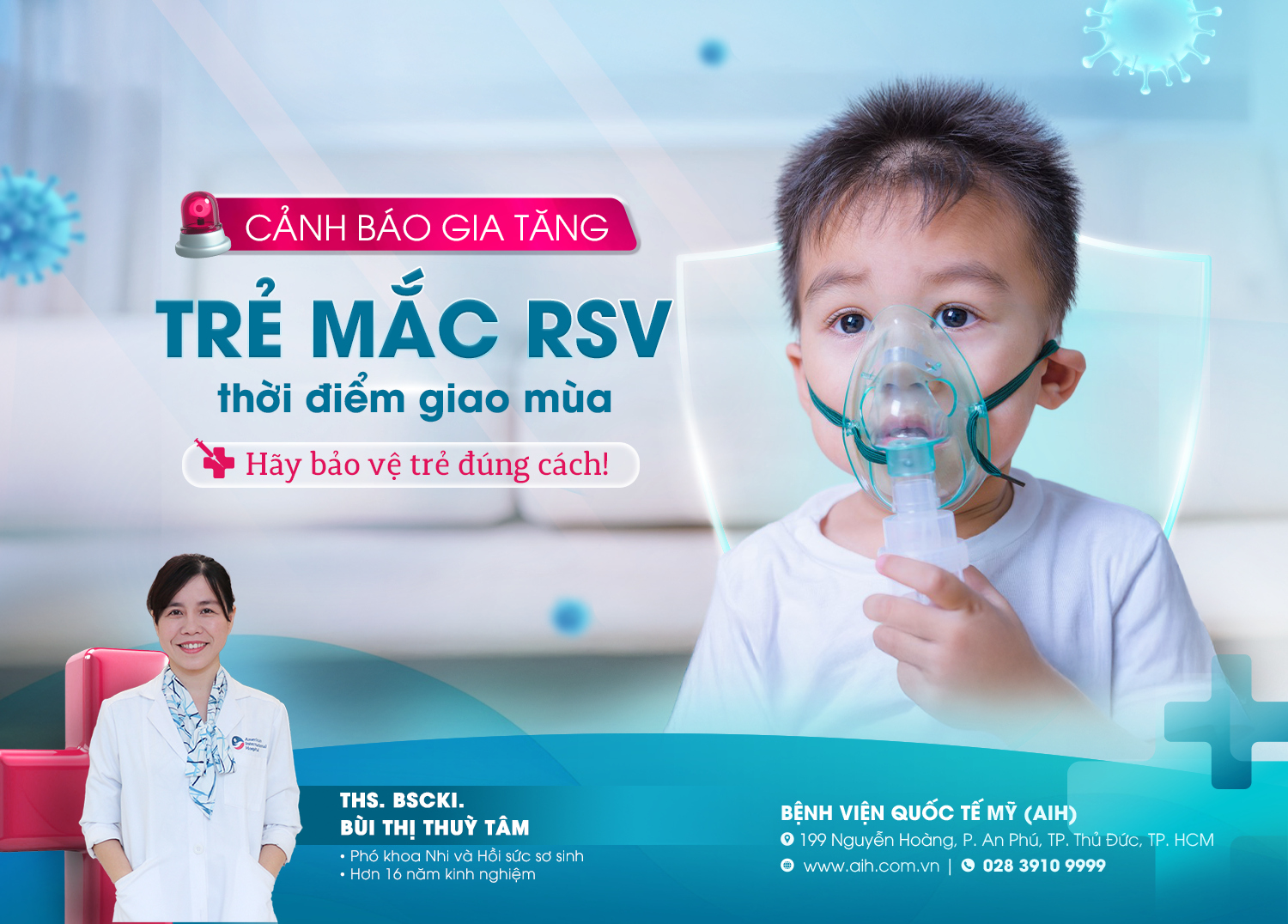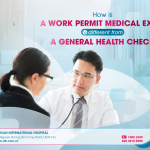Notification
Please fill in the information below
Urgent
APPLICATION OF MONOCLONAL ANTIBODY FOR PREVENTING RSV IN CHILDREN
Respiratory syncytial virus is a common cause of respiratory illness in children. According to statistics in 2022, RSV accounted for 80% of severe respiratory infection in children aged 6 months to 5 years, 61% of pediatric hospitalizations and was the second most common cause of mortality in children under 1 year of age. RSV can lead to severe infections in high-risk groups, especially in preterm infants. Patients with RSV complications may face a risk of death, with a rate ranging from 2.8 to 22% worldwide.
Depending on the climate and weather of each geographical region, RSV tends to peak at different times. Most regions in America and areas with similar climate, RSV is most active in the fall and at its peak in the winter. In Viet Nam, RSV-induced illness often peaks during seasonal transition, such as from winter to spring and from spring to summer. RSV “season” in the North often lasts from October to march of next year, from July to November in the Central areas, and from March to October in the South.
► Symptoms of RSV infection
RSV’s incubation period is typically 4 to 6 days after the infection. On days 1-2, symptoms are typically mild. It’s most severe on days 3,4 and 5, reduces by day 6 and resolves completely on days 7 to 10.
Common symptoms are: Dry cough, runny nose, mild fever/ high fever, wheezing, difficulty breathing (more common in children under 2 years old). However, RSV can cause serious infections such as bronchiolitis, pneumonia and other numerous complications such as respiratory failure, lung collapse, pneumothorax, otitis media, acute asthma exacerbation, and even death, particularly in high-risk individuals.
People infected with RSV can spread the virus to others for 3 to 8 days and may be contagious 1 to 2 days before the symptoms appear. Recovery duration for RSV is typically 1 to 2 weeks. However, some newborns and individuals with weakened immune systems can continue to spread the virus for up to 4 weeks, even without the presence of symptoms.
► Individuals at risk of severe RSV infection:
• Premature infants;
• Children under 2 years old with congenital heart or lung disease;
• Children with weakened immune systems;
• Older adults, especially those aged 65 and above;
• Individuals with chronic illnesses such as asthma, congestive heart failure, or chronic respiratory diseases (COPD);
• People with compromised immune systems, including those who have had organ transplants, or who have acute leukemia or HIV/AIDS.
► RSV Diagnosis methods
Diagnosis is initially based on medical history and clinical examination. The doctor may then order several paraclinical tests such as:
• Pharyngeal swab test: to accurately detect the presence of RSV (PCR RSV)
• Blood and urine tests, chest X-ray: to check for complications (if any) in patients with severe infections.
► How to treat RSV
• There is no specific treatment for RSV infection, only supportive therapy is available
• Cold-like symptoms in infants can be managed with gentle nasal aspiration
• Ensure adequate feeding with breastmilk or formular milk to prevent dehydration
• RSV infection may increase mucus production, some children may need respiratory support in the hospital and close monitoring
• Antibiotics are only used if there is suspicion of bacterial co-infection
Infants or young children with risk factors should be taken to medical facilities for examination and monitoring to allow effective management and prevent complications.
► Prevention method and treatment of RSV
• Avoid exposing children to crowded places, particularly to individuals having respiratory symptoms such as fever, cough, sneezing, runny nose, etc.;
• Keep children’s living environment clean, well-ventilated, free from kitchen or cigarette smoke;
• Reduce the spread: disinfect hands and surface of potential contaminated items with alcohol-based sanitizing solutions
• Be sure to thoroughly wash hands with soap and clean water or with alcohol-based sanitizers before taking care of children;
• If indicated by doctors, high-risk children may be given prophylactic medication to prevent the severity of RSV infection. This is an important method to prevent infection and reduce hospitalization and mortality rates due to RSV.
► Effective prophylaxis for infants and young children with high risks of severe RSV infection
Currently, the U.S. Food and Drug Administration (FDA) approves 2 types of monoclonal antibody therapies that can help prevent severe RSV infection in high-risk infants and children. There are Palivizumab – a short-acting monoclonal antibody and a long-acting one called Nirsevimab.
Palivizumab is a monoclonal antibody that targets the F protein of RSV, indicated for prevention of severe lower respiratory tract infection caused by RSV in high-risk children, such as:
• Preterm children (under ≤ 35 weeks) and currently ≤ 6 months old and entering RSV season.
• Children with pulmonary dysplasia with needs of medical attention within the past 6 months, currently ≤ 24 months old and entering RSV season
• Children having congenital heart problems with disturbed hemodynamics, currently ≤ 24 months old and entering RSV season
The medication is given by intramuscular injection once a month (15mg/kg/dose) and does not interfere with other vaccines the child may receive. One dose of Palivizumab has a 30-day effect so each child will be given 5 consecutive injections in the RSV season.
Nirsevimab is a single injection for infants and young children during their first RSV season.
Common side effects: Typically mild, mostly fever, rash, redness and swelling at the injected site.
At the moment, monoclonal antibody Palivizumab is available at American International Hospital (AIH). For more information about Palivizumab and convenient injection schedule, please contact our hotline at (028) 3910 999 or send direct message to our Fanpage.
Search
Latest News
Our Doctor






































































Leave a comment